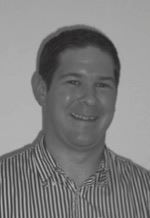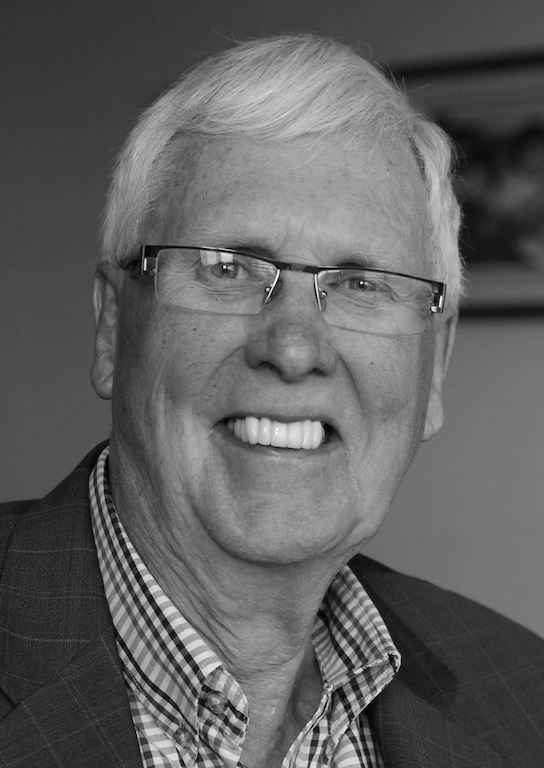Topics - Speakers:
1. Using Building Data to the Best Effect by
Keith Larose, Copper Tree Analytics Inc.

With fifteen years of business development experience in software, scientific and environmental verticals, plus a background that includes environmental monitoring and renewable energy projects, Keith La Rose leads the business development charge at CopperTree Analytics. At CopperTree, he focuses on energy management software solutions for companies seeking to create operational efficiencies, reduce their buildings’ energy consumption, and enhance their bottom lines. He holds diplomas in Network Engineering and Business Management.
Many buildings have building automation systems which are producing massive amounts of data each day. That data is often discarded and not used to its full potential to bring value to the building owners, operators and occupants. This session will explore how advanced analytics software technology is unlocking the power of that data, by turning it into actionable insight which helps to improve energy efficiency, occupant comfort, and capital equipment longevity. Real-world case study examples will be showcased, as well as a broad technical discussion about the state of the art in building analytics technologies.
2. M&V Case Studies: Chiller Plant Replacement and Demand Controlled Lab Exhaust by
Michael Kurz, University Health Network

Responsible for energy management of several University Health Network sites. Duties include developing and managing energy savings projects, working with operations staff to maintain and improve the efficiency of ongoing operations, achievement of energy targets, internally consulting with other project managers on renovation/expansion projects, and ongoing outreach amongst staff to promote culture of sustainability. Experience includes LED retrofits, boiler/chiller replacements, BAS modifications and upgrades, water efficiency upgrades, demand controlled HVAC modifications, etc.
Many organizations are targeting energy efficiency projects as a way to hedge against higher utility costs and to help future-proof their operations. A successful energy project requires strong monitoring and verification in order to validate expected savings and to inform potential future projects. This talk will present two case studies of energy projects undertaken at UHN, discuss the M&V plans, and look at the resulting savings.
3. Total Building Commissioning by
Dr Niall Byrne, Integral Group

Recognizing the importance of integrated and sustainable design in the built environment, Niall brings a broad understanding of building envelope systems to each project. Having graduated with a degree in Civil, Structural and Environmental Engineering from Trinity College Dublin, Niall proceeded to continue his studies to PhD level at the Centre for Innovation and Sustainability in Construction at Trinity College Dublin, specializing in moisture migration in heritage facades.
Total building Cx ensures that the performance of not only individual systems, but the relationships between individual systems are verified. Furthermore, we can ensure that buildings are optimized and can actually achieve the energy and sustainability goals identified at the start of the project. For example, we can ensure that the mechanical systems are operating as intended and are not being required to work overtime to account for unintended heat loss from the building, leading to increased operational and maintenance costs over the lifetime of the building. In terms of ensuring the continued operation and energy efficiency of buildings during operation, a detailed Total Building Commissioning Program is essential.
4. Accurate Air and Water Balancing Improves the Commission Process by
Linda Ku, President, Aerodynamics Inspecting Consultants Ltd.

Linda as President of AICL oversees all day to day operations. She has a wide range of experience in the testing and balancing of HVAC systems. She has a Master Degree in Environment Engineering and a Bachelor degree of Nuclear Physics. She currently works with TAB engineers and technicians to identify core issues and how to resolve those difficult issues. She also ensures the smooth progression of a project by implementing recognized guidelines and making pertinent recommendations.
Garret Wu, Project Manager, Aerodynamics Inspecting Consultants Ltd.

Garret has over 4 years in HVAC experience in “TAB” work as well as building automation systems verification and testing.
AICL has pioneered and continuously advanced the knowledge, methodologies and skills required for the design, installation, auditing, testing and reporting of new building and retrofit HVAC and mechanical systems.
Testing, Adjusting and Balancing (TAB) is essential for confirming the performance of HVAC systems. These two case studies will examine the typical TAB procedures used to trouble- shoot poor system performance and identify solutions. Inadequate flow can prove troublesome when trying to verify control sequences. Learn how professional level balancing can ensure all systems perform to the design intent and facilitate more effective commissioning.
5. Energy Recovery Devices by
Jason Henderson, HTS Toronto

Jason Henderson has worked with HTS Engineering since 2000. He currently manages the Owner Sales Group, providing building owners and managers with HVAC solutions for their facilities. Jason’s experience includes working with hydronic and air side systems. This includes central plant optimization, chiller and boiler solutions, controls, ventilation and variable refrigerant volume systems.
The ability to recover waste heat from buildings has never been more important than it is today. In order to recover waste heat from the building’s HVAC system proper application of energy recovery equipment is required. This presentation will cover the application of various types of Energy Recovery Devices in commercial buildings. As well, the proper selection of Energy Recovery Devices for the specific application will be discussed.
6. Discussions and Questions
Moderator: Michael Loughry, HH Angus and Associates Ltd.

PRESENTATION
on
"Tips, Tricks and Techniques
of Commissioning"
|
As a long time practitioner, the speaker will discuss some of the tips, tricks and techniques to successfully commission any project. In the tips portion, the discussion will focus on such items as starting early with the development of Owners Project Requirements (OPR) or alternatively how to handle projects that lack OPR (more typical). For example, adding value no matter what stage of the construction you enter the commissioning process. Tricks will look at how to engage all participants in the project and ideas about how to proceed cooperatively. Techniques will review methods for pricing, performance verification and operator training.
|
Speaker:
David Underwood

David Underwood, P.Eng , resides in Oakville, Ontario, Canada. As ASHRAE’s 2015-2016 president, his theme is “Making Connections.” He is an ASHRAE Fellow and a Life Member. He has received an Exceptional Service Award, a Distinguished Service Award and the William J. Collins Research Promotion Award. He previously served on the Board as a Director at large, two terms as a vice president, treasurer, president-elect and president.
Immediately after graduation in engineering from the University of Manitoba in Canada Underwood was employed by a major products manufacturer in HVAC&R. After approximately 10 years he founded Isotherm Engineering Ltd., an HVAC&R design-build enterprise, which continues to operate.
He was a Board member of the Ontario Refrigeration and Air Conditioning Contractors Association for many years. He served on the advisory group that assisted in developing provincial refrigeration regulations and also coauthored a trade refrigeration safety manual.
He was on the Canadian Standards Association (CSA) B52 committee on Mechanical Refrigeration. As a member of a Canadian Federal committee, he participated in writing the Building Science and Plumbing section of the 2015 edition of the Model National Building Code (MNBC).
David Underwood is also an ASHRAE Distinguished Lecturer, and a member of Technical Committee 7.2, HVAC&R Construction & Design Build Technologies.